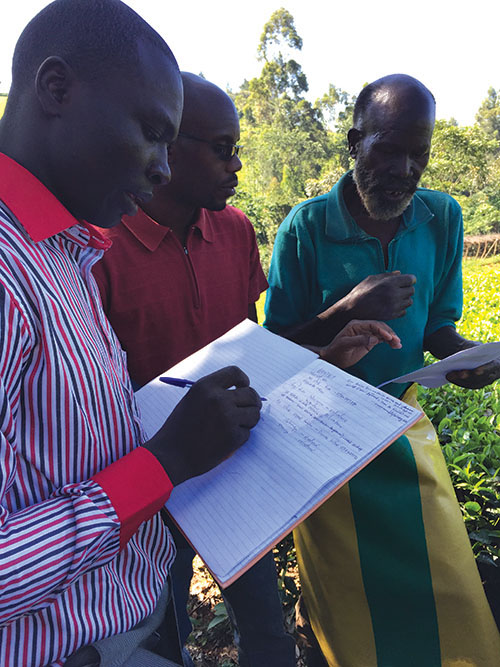C1/C2. Country-level Research & Capacity Building
 C1. (Field-Level Collaborative Research and Formulation/Analysis of Policy Options) strengthens two key building blocks for evidence-based policy making at country level:
C1. (Field-Level Collaborative Research and Formulation/Analysis of Policy Options) strengthens two key building blocks for evidence-based policy making at country level:
- the information base, at farm, firm, and market levels
- applied research on policy question.
C1 is carried out in a collaborative, learning-by-doing mode with local researchers and data collection staff in response to country-led, prioritized research agendas.
The outcome increases national capacity to generate and analyze information, and to formulate evidence-based policy options for consideration by decision makers and stakeholders. Applied research activities emphasize gender-disaggregated analysis, linked to nutrition outcomes where feasible, and integration of natural resource management dimensions. C1 is implemented jointly with activities under component 2 (Capacity-Building for Policy) the scope of which includes data, analysis, advocacy, formulation, consultation, coordination, and implementation.
Seamlessly integrated with the work of collaborative policy-oriented research, the FSP uses the results of country assessments under component 1 to identify country-specific policy system capacity needs.
For example, in-depth applied research on a specific policy issue under component 1 can be combined with partnership with a local advocacy group, throughout an entire policy cycle, to promote inclusion of a broad range of parliamentary, private sector and civil society stakeholders, and to formulate, debate and advocate for policy choices. Once a policy change is agreed upon, the capacity to monitor its implementation could be assessed and upgraded. Outcomes might include improved policy processes driven by strong empirical evidence and active dialogue among all relevant stakeholders.
The design of activities for components 1 and 2 are informed by best practices identified through component 3 (policy systems analysis). Experience in implementation in turn strengthen the evidence base on best practices for capacity building. Similarly, engagement in global policy debates and strategic analytical support to USAID (components 4a and 4b, and 5) inform evidence-based policy analysis at country level and vice versa.


